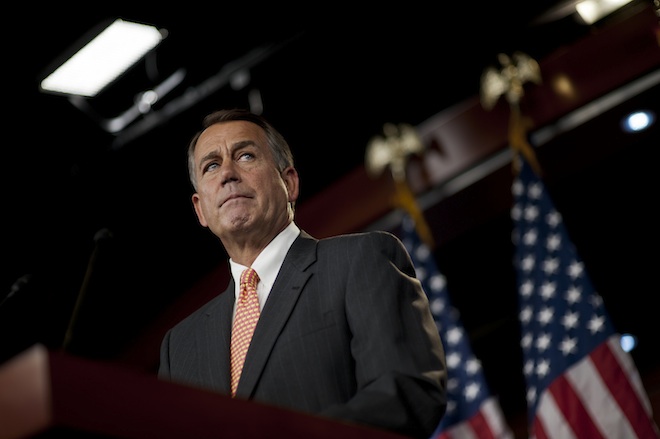Barring an unexpected collapse in negotiations, a broad deal to extend the temporary payroll tax cut and other expiring measures will be finalized Wednesday. But with time winding down, top Democrats and Republicans are still fighting over key details — particularly how to pay for over $50 billion of the approximately $150 billion package.
One of the likely financing provisions would require federal workers to provide greater contributions to their own retirement packages.
“I’m very unhappy with the projected pay-fors which hit average working Americans, otherwise known as federal employees, pretty hard,” House Minority Whip Steny Hoyer (D-MD) told TPM and one other reporter in the Capitol Wednesday. “I don’t know the exact details and the exact details are being worked on. So from that standpoint I’m not happy.”
Hoyer represents a Maryland district that’s chockablock with federal workers, which underlies his concerns. Asked if he himself planned to vote for the measure, Hoyer proclaimed “I don’t know.”
Other pay-fors expected in the final package would cut the health care reform law’s prevention fund and Medicare reimbursements to hospitals and home health services; still others use proceeds from auctioning licenses to transmit signals over U.S. spectrum. Those provisions would raise enough money to cover extended unemployment benefits and Medicare reimbursement rates for physicians. The unemployment insurance formula will likely be tweaked to reduce the maximum number of weeks unemployed workers can receive benefits to 63 weeks. People in states with particularly high unemployment would be eligible for 73 weeks of benefits, though it’s not clear whether any states would meet the new criterion.
“You have so many different pay-fors floating out there,” Rep. Xavier Becerra (D-CA), one of the Dems’ negotiators, told a handful of reporters. “And I think Democrats would like to make sure that we don’t drag down the economy with any pay-fors and that we don’t penalize some American workers to try to help others. So it’s just one of those things where it’s the matter of getting the right mix of pay-fors.”
All that means Hill leaders are cautiously optimistic that the whole package can be agreed upon by Wednesday evening and passed before the President’s Day recess next week.
“[T]hings have had the ability to change around here rather rapidly,” said House Dem caucus chair John Larson. “When it appears that a deal has been struck then it appears that deal is no longer in place. We hope that the signs point that way and we can only wish them well.”
But the fact is that with buy-in from both parties, reaching 218 votes to pass the bill won’t be a terribly heavy lift. House Speaker John Boehner was a bit more optimistic.
“I think there’s agreement in principle, but there are a lot of details that are yet to be worked out,” he said. “I’m hopeful that they’ll be wrapped up today.”






